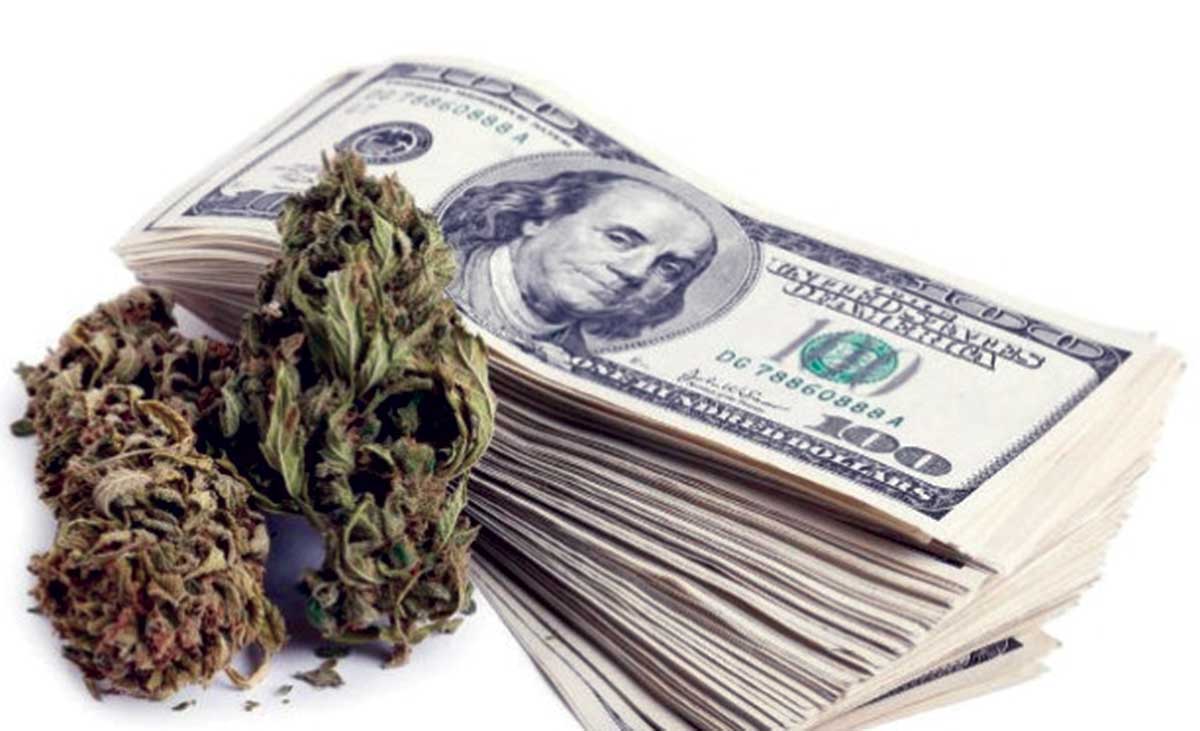
The state of Hawaiʻi has the highest cost of living in the U.S., and many residents struggle to make ends meet. Nonetheless, state legislators are eyeing tax hikes on gas and the general excise tax (GET), which has already gone up more than 25 percent since the 1990s. Legislators raised the GET from 4 percent to 4.5 percent for the rail project, and now senators want to pass Senate bill 2938 to increase three different vehicle taxes.
Where else could Hawai’i get money from? Proponents of marijuana legalization say that the aloha state could profit off stoners.
As Hawai’i is popular among weed enthusiasts for its “Kona Gold,” “Kaua‘i Electric,” and “Maui Wowi” strains, many tourists and residents mistakenly believe marijuana is easily accessible here.
“I didn’t realize how difficult it would be to find my medicine in this state,” said Eric Gardner* (*names have been changed for privacy reasons). “But I moved here, and now I have to buy from the black market because my rental agreement doesn’t allow me to grow.”
Medical marijuana has been legal in Hawai‘i for 15 years, but the state hasn’t taken fiscal advantage of the opportunity until recently with the legalization of medical dispensaries. Dispensaries will be able to sell medical marijuana starting July 15.
While medical dispensaries have been a long awaited achievement for residents with medical cards like Gardner, some think it’s time to legalize recreational marijuana as there is more money to be made and fewer people opposed to recreational marijuana nowadays.
Local polling from Qmark research revealed that 57 percent of Hawai’i residents were in favor of taxed, regulated recreational marijuana, up 20 percent from 2005. Qmark polls also showed that 69 percent of people think jail time for marijuana use is inappropriate.
Using a 10 percent retail tax, Colorado made $7 million from marijuana tax revenue last year, more than it did from alcohol. Washington state has a 25 percent tax structure levied on producer, processor and retail levels of recreational marijuana and made $70 million in sales tax revenue last year.

University of Hawai‘i economist and associate professor of public policy David Nixon estimates Hawai’i would generate at least $11.3 million a year in new taxes. However, the estimates on how much Washington and Colorado would make were greatly exceeded, so it is difficult to come up with a definite number for Hawai‘i.
Simply decriminalizing marijuana would save the state of Hawai‘i the $9 million spent annually on enforcing marijuana laws, up from $5 million in 2005.
“It’s not impossible that people would look at that and think, maybe we should scale back our efforts there and focus on stolen cars and other stuff,” Nixon said.
When asked what Hawai’i could do with $9 million, O‘ahu correctional officer Kristy Myers* said, “I think we most definitely could find better use for that money. People are going to smoke pot if they want to. If we can stop putting people in jail and start having them pay our taxes then I could see it (legalization of recreational marijuana) benefiting more than harming.”
Some, however, are wary.
“I don’t think it would be a good idea,” said THCF Hawai’i Clinic doctor John Lacey*. “You may think this is because I am paid to prescribe (marijuana) to people, but complete legalization would simply get out of control and minors would be more at risk … and contrary to (popular) belief some people can form dependencies to marijuana.”
Kailua resident Patrick Hascall said legalization might lead to overpopulation. “If you look at Colorado and Washington, the rent has skyrocketed as people are flooding into the states just because they can smoke pot.”
Amy Pasquaeriello, owner of Hawai‘i Hydroponics and Garden, said that another issue is that “huge challenges would come from using heavy metal fertilizers and contamination from pesticides.”
While that is traditionally more an issue for large scale crops, Pasquaeriello points out that Hawai’i has a lot of bugs. “And the humidity! But it could be done. Indoor growing is just more expensive,” she said.
University of Hawai‘i economist Michael Roberts believes the biggest issue would be water because pineapple and sugar cane crops have diminished Hawai‘i’s groundwater aquifers.
“We’re seeing a stabilization of aquifer head levels, but more and more of the wells are becoming infiltrated with salt water,” he said. “If we start growing marijuana on a large scale, there’d be important questions about how much water we’d be using.”
If issues concerning pesticides and water could be addressed, Hawai‘i Business claims that legalizing recreational marijuana would create a new commercial industry for Hawai’i and could not only bring more tourists to the islands but collect more money from them as well.
Right now, money the state could be earning goes untaxed into the hands of illegal dealers.
“Yeah I made like … 100, 110k last year,” said a local marijuana-only street pharmacist.
“Honestly, I help a lot of people, and no I don’t feel bad about distributing, because it’s only weed, and hardly anyone else is stepping up to the plate … And I’ll sell it to tourists too. These people come here on their honeymoons and end up dealing with sketchy people only to get ripped off and given the super low grade stuff. They’re lucky if someone hooks them up with me.”
When asked what would happen to his income if legalization were to happen, he said, “Well, a lot of dealers would go out of business sure, but not me.”
However, legalization could also mean more job opportunities for Hawai’i residents knowledgeable about marijuana. Colorado estimates 7,500 to 10,000 people in the state now have jobs in the cannabis industry.
Regardless, many in Hawai’i will be watching to see what happens after medical marijuana dispensaries open this year and contemplating what the next best move for marijuana in Hawai’i is, if any move at all.
by Gracie Berkley, Ka ‘Ohana Editor in Chief




